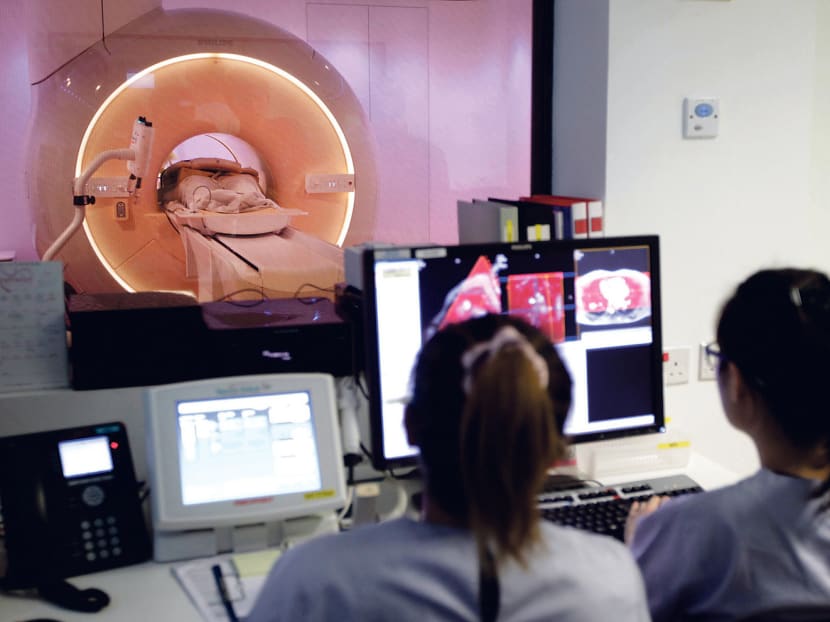A*STAR signs S$26m deal to provide better-quality healthcare
SINGAPORE — Faster and more accurate diagnosis of diseases and better patient monitoring systems to support an ageing population — such healthcare outcomes — may be possible as a result of a US$20 million (S$26 million) agreement between the Agency for Science, Technology and Research (A*Star) and American medical technology company GE Healthcare.

Better-quality CT and MRI scanners will help clinicians prescribe better treatment
for patients.
Photo: Wee Teck Hian
SINGAPORE — Faster and more accurate diagnosis of diseases and better patient monitoring systems to support an ageing population — such healthcare outcomes — may be possible as a result of a US$20 million (S$26 million) agreement between the Agency for Science, Technology and Research (A*Star) and American medical technology company GE Healthcare.
The five-year agreement, signed yesterday, will commit to research in three areas: Patient monitoring, computed tomography (CT) and magnetic resonance imaging (MRI).
A*STAR said medical technology is a high-growth sector, with manufacturing output growing from S$3.3 billion in 2009 to S$5.1 billion last year. Over the same period, the sector’s manpower base grew from 8,400 to 10,400.
Each side will contribute half of the US$20 million funding, with the full amount going towards research and development. Scientists will work from A*STAR facilities, the agency said.
“There are a lot more opportunities to transfer value ... value is not just the case in making procedure or treatment cheaper, (but) improved outcomes, reducing complications, trying to provide same care across all continuum, outside of hospital within the community,” said Associate Professor Tan Sze Wee, deputy executive director of Biomedical Research Council at A*STAR.
Specifically, better-quality CT and MRI scanners will help clinicians prescribe better treatment for patients through more accurate diagnosis of illnesses, such as neurological disorders, heart diseases and cancer.
Research will include looking into how to make the processing of imaging quicker.
Mr Stuart Dean, chief executive officer at GE ASEAN, said: “One of the ways to reduce costs is through earlier diagnosis of diseases that people have, treating them much more effectively and at less cost the earlier you (diagnose) them.”
Better diagnostics tools will also reduce the systemic cost, he added.
Remote patient monitoring is expected to take on a bigger role, with more people having access to the Internet, an ageing population and Singapore’s drive towards a Smart Nation.
Assoc Prof Tan said that as the country ages, care will be needed anywhere. Technology will come in handy, such as by using sensors in the environment for monitoring. And with technology, accessibility to healthcare in more rural areas may increase, too.
Mr Dean said: “There are non-urban, ASEAN markets where healthcare is not very good today. Even though there are some non-urban parts that are not connected, they are quickly becoming connected.
“So, we are able to take advantage of the wireless technologies to be able to transmit images taken from handheld ultrasound equipment.”






